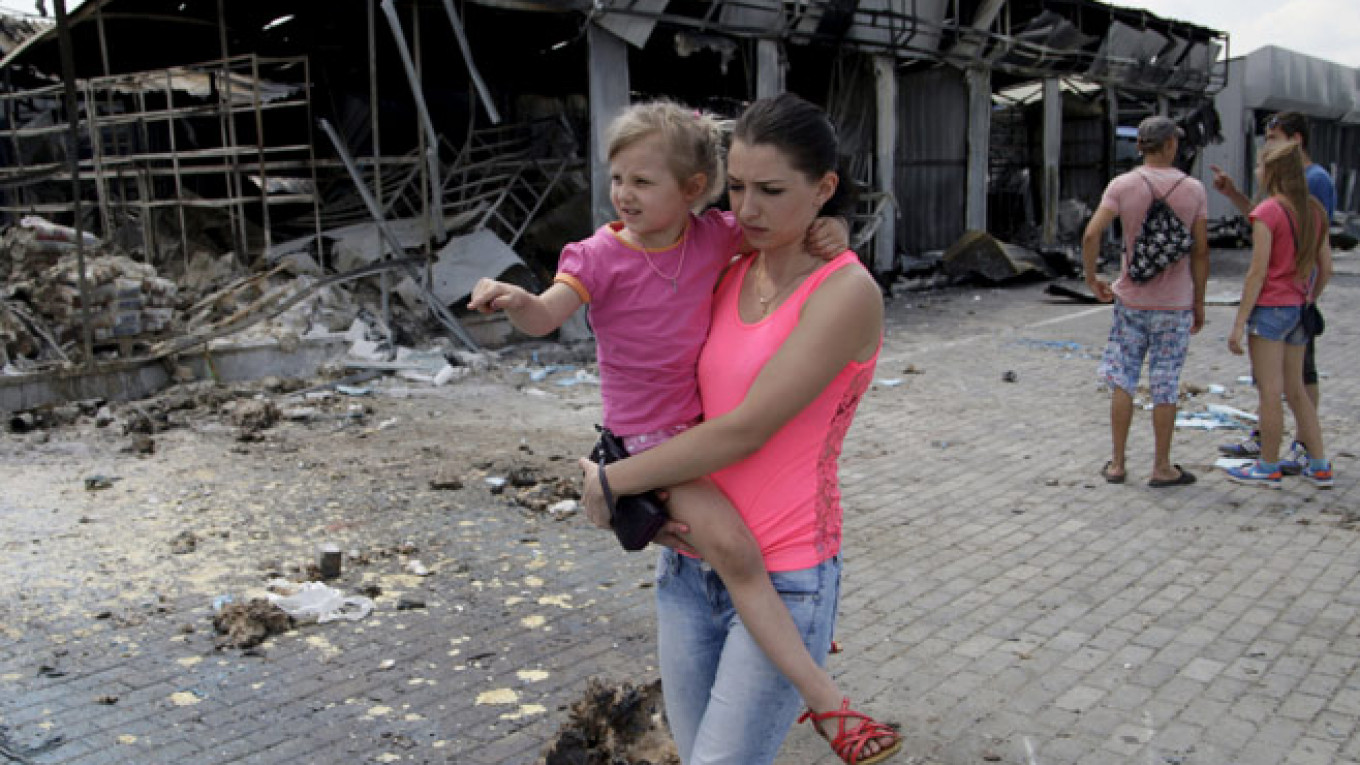WASHINGTON — A summit of President Barack Obama and other Western leaders this weekend in Germany is expected to produce new condemnation — but not more punishment — of Russia for its suspected role in the escalating violence in Ukraine.
Ukraine is pleading for a response from the Group of Seven leaders meeting Sunday and Monday in the Bavarian alps, a year after the world's largest industrialized democracies booted Russian President Vladimir Putin from their ranks in protest over the crisis that has now killed more than 6,400 people. Yet Ukraine and pro-Russian separatists are engaging in their most violent battle in months, despite economic sanctions against Moscow and a four-month-old cease-fire agreement.
"I don't think we can kid ourselves that the policy and right now the actions on the ground are producing the results we want," said Heather Conley, director of the Europe Program at the Center for Strategic and International Studies in Washington. She said European leaders will be assessing Obama's next steps as they face a decision later this summer about prolonging their sanctions.
"Russia has not changed its behavior," she said. "If anything, President Putin, I think, is doubling down on multiple fronts, and the cohesiveness feels like it's not there. People don't know what's next, how are we going to continue on."
Richard Fontaine, president of the Center for a New American Security, said there's been less unity in the G7 now than last year when they came into the summit trying to isolate Russia.
"What the Russians have bet on is that over time, the different interests — in Europe and the United States — are going to point in different directions," Fontaine said. "As time goes on, barring another real acute crisis moment, it's going to be harder to keep the group together focused on one vision toward Russia."
The G7 gathering at the picturesque Schloss Elmau, a one-time artist retreat turned luxury spa, will bring together the leaders of Britain, Germany, France, Italy, Canada, Japan and the United States. The Europeans will join other leaders from the continent in meetings this summer where they'll vote on renewing current sanctions on Russia.
But unless there's a significant escalation of the crisis, the U.S. and European Union appear to have little appetite for levying tougher penalties on Russia.
Alistair Baskey, a spokesman for the White House's National Security Council, said leaders would focus on how to best support the existing cease-fire deal, "including by ensuring that sanctions will remain in place until Russia fully implements these agreements, and by discussing options for intensifying the costs in the event of further aggression by Russia and the separatists."
Ukraine accuses rebels of deploying a major offensive with around 1,000 fighters and dozens of tanks and self-propelled artillery systems in a flagrant violation of a February cease-fire agreement. Ukraine and the West assert Moscow supplies rebels with manpower and powerful weapons.
Russia rejects those claims as unfounded. And the separatist armed forces pointed blame for the renewed fighting back at Ukraine, saying they engaged only in defense measures after an all-out assault by the Ukrainian army.
Ukrainian Prime Minister Arseniy Yatsenyuk is urging G7 leaders to condemn Russia. "The international community must come up with a correct and appropriate response to Russian aggression," Yatsenyuk said.
The prime ministers of Canada and Japan intend to make an in-person show of support to Ukraine by visiting on their way into Germany.
Implementation of the cease-fire sealed in Belarus in February has foundered amid a proliferation of low-intensity battles that have now been overshadowed by developments in Marinka, the government-held town where the recent fighting was centered.
The armistice required both sides to pull back heavy weapons from the front line, but international observers vetting that process regularly note violations across the board. Regular reports of casualties among government and separatist fighters have continued unabated. But deaths among noncombatants had almost ceased until recent days, in an indication that the warring sides are again increasingly resorting to indiscriminate shelling.
The U.S. State Department said it was disturbed by the unrest and said any rebel attempts to seize Ukrainian territory would have costs for Russia, which it accuses of guiding the separatists.
"We'll continue to impose additional costs, and we're having those conversations internally certainly, and with our partners," said State Department spokeswoman Marie Harf.
A Message from The Moscow Times:
Dear readers,
We are facing unprecedented challenges. Russia's Prosecutor General's Office has designated The Moscow Times as an "undesirable" organization, criminalizing our work and putting our staff at risk of prosecution. This follows our earlier unjust labeling as a "foreign agent."
These actions are direct attempts to silence independent journalism in Russia. The authorities claim our work "discredits the decisions of the Russian leadership." We see things differently: we strive to provide accurate, unbiased reporting on Russia.
We, the journalists of The Moscow Times, refuse to be silenced. But to continue our work, we need your help.
Your support, no matter how small, makes a world of difference. If you can, please support us monthly starting from just $2. It's quick to set up, and every contribution makes a significant impact.
By supporting The Moscow Times, you're defending open, independent journalism in the face of repression. Thank you for standing with us.
Remind me later.






